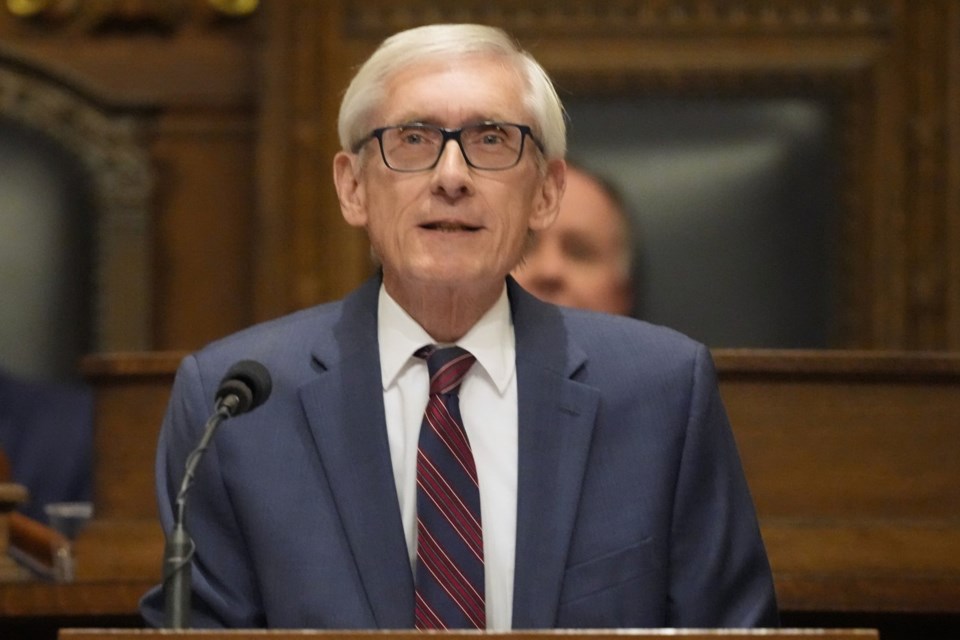MADISON, Wis. (AP) — Republicans who control the Wisconsin Legislature voted Thursday to kill most of the top spending priorities of Democratic Gov. Tony Evers, including legalizing marijuana, even as both sides negotiate a tax cut.
The Legislature's Republican-controlled budget committee voted along party lines to kill more than 600 budget proposals put forward by Evers, including spending more state money on child care providers, expanding Medicaid and raising taxes on joint tax filers those who earn more than $1 million.
Republicans did the same thing in each of Evers' previous three budgets and had said they were going to do it again. Some of the killed ideas, like allowing absentee ballots to be processed before polls open on Election Day, have had bipartisan support in the past and could return in another form.
The cuts come amid uncertainty about how much federal money the state will get as President Donald Trump's administration moves to drastically reduce government spending. Evers' budget as introduced would have spent about $119 billion money over two years, a 20% increase in spending.
Evers and Republicans have been talking about a tax cut plan they both could support but have not released details. Republicans argue that most of the state's roughly $4 billion surplus should be returned as tax cuts rather than used to support spending on K-12 schools, the University of Wisconsin and other state programs.
Evers proposals stripped from the budget on Thursday include: eliminating the tax on tips; increasing funding to combat what some people call forever chemicals or PFAS; targeted property tax cuts for veterans, seniors and people with disabilities; spending $128 million on new financial aid targeting low-income college students and adding gender-neutral language such as “person inseminated” to state law.
“Republicans talk a lot about what they’re against, but not what they’re for," Evers said in a statement. “There are pressing challenges facing our state. Wisconsinites are sick and tired of having a do-nothing Legislature. Republicans must get serious about getting things done.”
Republican Sen. Howard Marklein, co-chair of the budget committee, said “popular items” could return as separate bills. Co-chair Rep. Mark Born said just because the committee was rejecting Evers' approach to various issues facing the state doesn't mean they won't be addressed in other ways.
The vote gutting the governor's spending plan marks the first step in what will be a weekslong process of slowly rebuilding the two-year budget to include more Republican priorities. Evers can make more changes with his broad veto power once the Legislature passes a budget, which typically happens in late June or early July.
However, Republicans have talked about taking longer to pass a budget this year, or passing only certain top priority spending bills, in reaction to a Wisconsin Supreme Court ruling upholding a line-item budget veto Evers made in 2023 that extended a K-12 spending increase for 400 years.
That ruling affirmed the governor's power to veto digits from a budget bill, allowing him to create new amounts and years not envisioned by lawmakers.
The court noted in its ruling, however, that the Legislature could rein in the governor's veto powers in several ways. That includes passing a constitutional amendment that’s under consideration curbing a governor’s veto power and drafting budget bills in a way to prevent a governor from making such a sweeping veto.
Scott Bauer, The Associated Press



